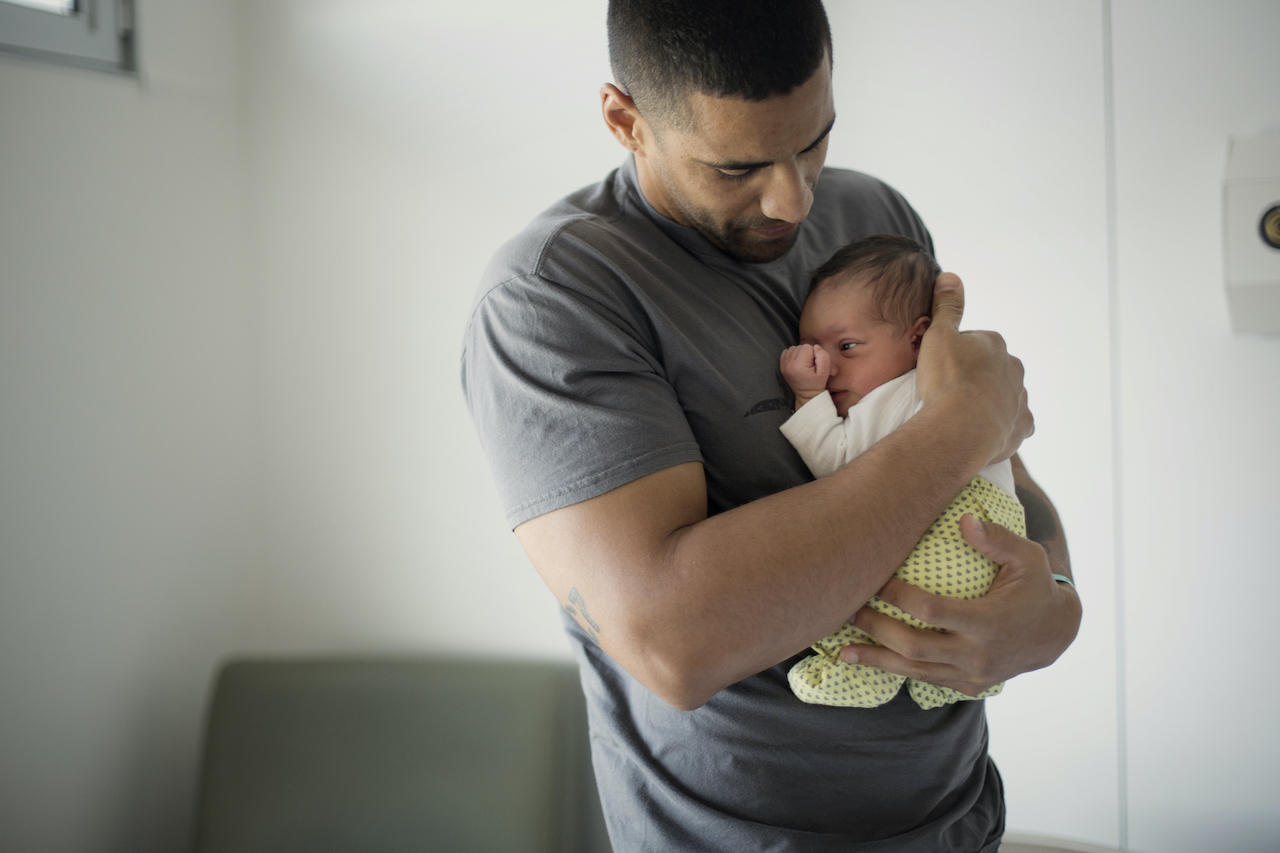How to help your baby sleep better
Is your baby struggling to sleep? From feeding schedules to what creates the perfect sleeping environment, find out how to help your baby sleep better

Whether you’ve just brought home a newborn or your older baby’s sleeping pattern has changed, trying to get a good night’s sleep is essential for both your baby and the people they live with. From struggling to get to sleep, to waking up several times during the night, early childhood sleep problems are varied and can lead to stress and exhaustion for everyone involved.
Perhaps you’re looking for the basics of creating a sleep routine for your baby? Or maybe you want to know how to go about creating an environment that promotes sleep, including the best temperature and humidity levels in the air? We asked an expert for their top tips to help you get your baby to settle into their sleep routine.
Plus, if you're looking for the best humidifier to help your baby to sleep better, our guide has a range of great options.
Sleep routines for babies
Nanny, doula, and early childhood expert Abbie Howey told LiveScience how parents and carers should go about settling their baby into a sleep routine. “A baby should ideally be in a routine by three months,” she said. But don’t worry if you missed that deadline. She said there’s still time to get your baby settled into a routine with a bit of expert know-how. “Once you have decided on what time you would like the child to be asleep by, I always suggest starting the bedtime routine about 45 minutes beforehand.”
When you’re looking at creating a sleep routine for your baby, there are some tried and tested steps to include to help your baby settle in and relax in time for them to go to sleep. Howey recommended the following five steps to get your baby ready for a restful night’s sleep:
1. Bath - a quiet bath time, free from excitement and distractions, is the first step in getting your baby ready for a good night’s sleep.
2. Massage - a tummy massage or tummy time will help your baby’s digestion and ensure they have a comfortable night.
3. Story - spending time reading a story to your baby or playing a recorded bedtime story will help them relax. Reading to babies has also been found to improve their communication skills later in life.
4. Feed - the final step before putting your baby to bed is to give them milk, either breastfed or in a bottle.
5. Bed - finally, while your baby is still awake, place them in their cot, and leave them to go to sleep.
There is no set time that you need to put your baby to bed by. It is down to you and your family to work out the best timings to suit your living situation. Most babies will sleep for around eight hours at night, and once settled into a routine, should not have issues with interrupted sleep.

Conditions to aid your baby’s sleep
The environment your baby sleeps in will affect their ability to get to sleep and stay asleep through the night. When decorating the space, Howey recommends sticking to neutral colors and avoiding anything too stimulating. Keep the lighting soft so you have a calm space in which to get your baby ready for bed.
Temperature is an important factor when creating the ideal space for your baby to sleep in. Howey says to keep the room temperature between 60F and 68F throughout the year. Humidity levels should be kept at around 40% and maintained with one of the best humidifiers. However, humidifiers should not be used while the baby is in the room and should be avoided for babies with weakened immune systems (premature babies in particular). You can monitor the temperature and humidity levels in your baby’s room with a combined thermometer and hygrometer. The devices can be bought very cheaply and allow you to ensure the room’s conditions are optimal for your baby’s sleep.
- Read more: How should you sleep during pregnancy?
The room will need to be as dark as possible for your baby to sleep well, so consider blackout curtains, blinds, or shutters to keep light out. This is especially true during the summer months, when it may still be light outside whilst your baby is going to bed. Howey also suggests placing a white noise machine in your baby’s room to help them relax and get to sleep. White noise machines play a variety of sounds, from womb noises to ocean waves.
Much like for an adult’s bedroom, the emphasis should be on creating a space that is designed for sleep and relaxation. Where possible, this will involve making sure the baby sleeps in its own room or next to their carer, as opposed to sharing a room with siblings. Your baby should sleep in a cot or bed that is safe and designed for their age group. They shouldn’t have any blankets, cushions, toys, or other soft furnishings in their bed with them.
Tips for your baby's sleep routine
We asked Howey for her top tips for new parents or carers trying to help their baby sleep through the night.
1. Routine is critical - your baby will thrive on routine both during the day and at night, and it will also help you to relax and plan your time more easily. Routines should be designed to fit around your baby’s needs first, but you can adapt them to work alongside your lifestyle. Activities in your baby’s routine should consist of wake up and sleep time, nap times, feeding times, and bath time. Setting the foundations for routine early on will help your child transition comfortably into future phases of their life too.
2. Be consistent - agree on your routine with those who share your baby’s care. Be clear that the routine is to be applied every day, regardless of who is taking care of the baby. Writing your routine down or sharing it online with them can help everyone to stay on the same page. If you want to help your baby to stay in their routine, consistency is key.
3. Self-soothing is ok - although self-soothing has been seen as controversial by some experts, Howey recommends allowing self-soothing to a point. If your baby is fussing, but not in any distress, then allowing them to self-soothe and go back to sleep on their own is a sensible way to help them get the sleep they need. Of course, self-soothing is not always appropriate, and on occasion, you will need to break your routine to give them the care they need.
Sign up for the Live Science daily newsletter now
Get the world’s most fascinating discoveries delivered straight to your inbox.
India Bottomley is a health and beauty writer whose work has been published in the likes of Cosmopolitan, Forbes, and Dazed Magazine. A lifelong skincare aficionado, India has been writing research-led pieces on trending skincare, makeup, and cosmetic procedures since 2016. She takes particular interest in the growing connection between tech and beauty, and has had pieces on the topic published in American Healthcare Journal. When not writing she can be found exploring national parks or at the beach chasing sunsets.











